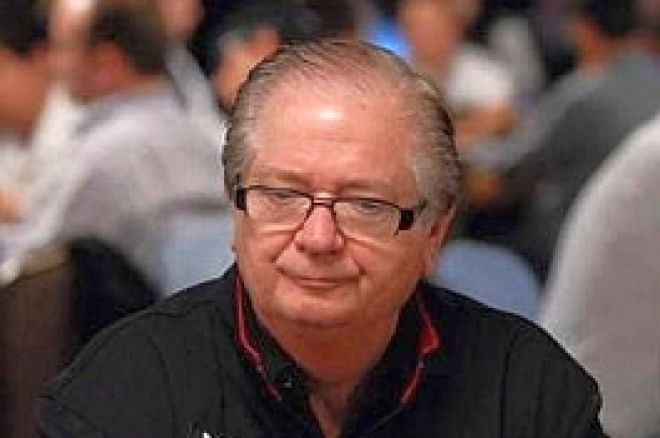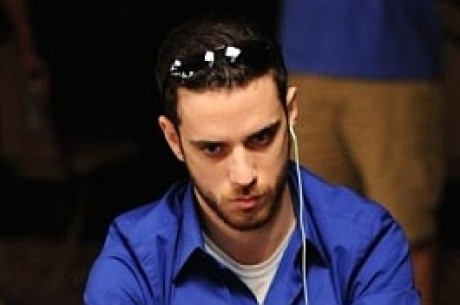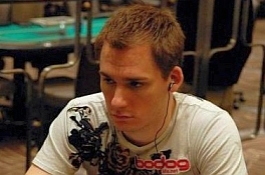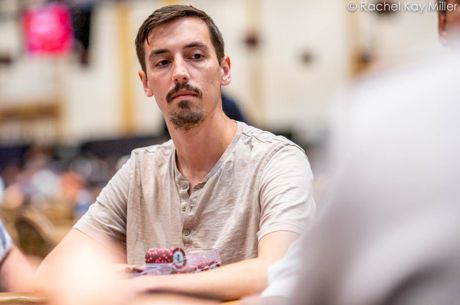From the Poker Vaults: Billy Baxter

If Billy Baxter weren��t so good at everything else he did �� playing gin, betting on sports, and managing boxers, just to name a few �� his prowess at the poker table would undoubtedly be much better known. Over the course of his 34-year poker career he has won millions of dollars along with seven World Series of Poker bracelets, ranking him sixth on the all-time list, and yet he��s hardly a household name. Much of his anonymity stems from his aww-shucks personality. As Doyle Brunson once put it, ��He gives you that country-bumpkin smile and that good old Georgia-boy accent and gets you laughing and having a good time, and you look up and he��s got your money.��
Born and raised in Augusta, Georgia, Baxter started gambling when he was just 14 years old, hustling money from grown men in pool halls when he was supposed to be helping his mother find new clients for her insurance company. By the time he was 16, he��d saved over $5,000 and was deemed good enough to play Willie Mosconi in an exhibition match, but he knew pool was a dead-end street because there was so little money in it. All the time he spent in pool halls would later pay a large return, however, for it was there that he discovered the game that would end up having the greatest impact on his life, poker.
To appease his mother, he attended Augusta College, but ended up dropping out after a year and a half. Next he tried selling encyclopedias door to door, and, although he proved to be good at it, his heart just wasn��t in it. He quit so he could gamble full-time, and the career move proved to be a good one. During the first year of his new profession he earned over $40,000. Not bad for a 22-year-old.
Baxter used his winnings to buy an underground casino named the Paisley Club, but the police forced him to shut it down. Undaunted, he opened another casino on the outskirts of town that was especially popular during the Masters golf tournament. Too popular, as it turned out. In the middle of the 1975 tournament, the Georgia Bureau of Investigation raided the establishment and arrested Baxter. He served nine months in the Richmond County Correctional Institute, where he passed the time playing dollar-limit poker.
As soon as he got out, he and his wife Julie moved to the one place he could legally conduct his business, Las Vegas. For their first nine months in town they lived in the Cary Grant Suite at the Dunes Hotel courtesy of Sid Wyman, one of the hotel��s owners. It was perfect timing for Baxter because he arrived just in time to take advantage of some of the biggest fish in poker��s history, including Jimmy Chagra and Major Riddle. ��It was a paradise,�� he said. ��Sometimes the pots would go as high as a million dollars, and there were a lot of big hotel and casino owners who loved to play but couldn��t play very well�� I won so much I got to feeling guilty about it.��
Baxter enjoyed as much success in tournaments as he did in the cash games. After winning his first gold bracelet in the $1,000 Deuce-to-Seven Draw event at the 1975 World Series of Poker, he went on to win six more. All but one of them he won playing that very same game. In fact, he is generally considered one of the best deuce-to-seven players of all-time.
The following hand provides a good illustration of his skill at the game. While playing deuce-to-seven in a cash game against Baxter, Doyle Brunson held 3-4-5-6-8, a strong hand that could only be beat by just a few hands. There was only about $20,000 in the pot, but Baxter and Brunson had a $30,000 side bet concerning which of them would win the hand. Thinking he had the best of it, Brunson led out with a bet. Baxter responded by raising him another $50,000. After thinking it over, Brunson decided Baxter must have had a 7-6 with a deuce. Brunson folded, but another player called, forcing Baxter to show his bluff.
��How the hell can you run me out of that hand with four deuces?�� asked Brunson.
��Well,�� smiled Baxter, ��I knew you didn��t have any.��
One of the things Baxter is best known for is staking Stu Ungar in the main event of the 1997 World Series of Poker when no one else would touch Ungar, a gamble that paid off handsomely. Ungar��s victory earned Baxter a cool half million. One of the things he��s not so well known for but should be is his historic battle with the IRS. Baxter contended that the $1.2 million in gambling winnings he earned from 1978 to 1981 was earned income, whereas the IRS believed it to be unearned income, allowing it to tax the money at the maximum rate of 70 percent. In William E. Baxter Jr. vs. the United States of America Baxter challenged the government��s right to do this, and after years of appeals he finally won the case in 1986. His one-man fight effectively legitimized the game of poker, allowing professional players the right to declare their winnings as earned income, to deduct expenses and losses, and to create pension funds.
For this achievement as well as his accomplishments at the table, Baxter was inducted into the Poker Hall of Fame in 2006. Today, he lives in an elegant mansion in one of the most fashionable parts of Las Vegas with his wife and children, but that��s not to say that this old gambler walks an entirely straight line. While playing in a cash game on February 19 a few years back, he called his wife and told her that he would be ��a little late�� for her birthday party that night. Stuck in the game, Baxter didn��t get home until the morning of the 21st. Most men would have been banished to the doghouse, but, befitting his personality, Baxter was able to extricate himself from the jam with his aww-shucks grin and a little quick thinking. ��Although I was two days late for Julie��s birthday party,�� he explained, ��I was right on time for our anniversary, which is February 22.��








